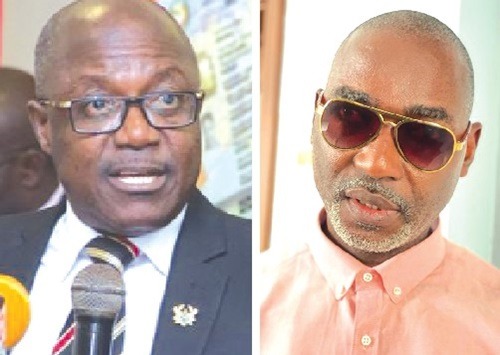Even before the nationwide registration exercise to capture citizens and non-citizens into the national identity register comes to an end, Persons with Disability (PWDs) are registering their displeasure about the process.
Their bone of contention is that the National Identification Authority (NIA) has not given them the needed preferential treatment with regard to the exercise in accordance with United Nations Convention on the rights of persons with disabilities (PWDs).
Their umbrella body, the Ghana Federation of Disability Organisations (GFD), has called for the establishment of a special registration centre to cater for those who are still without the Ghana Card.
Struggle for identity card
A cobbler at Adenta, Joshua Nimo, who is aided by wheelchair to move around, said he and others living with disabilities had to struggle to secure their identity cards.
He said it was for that reason that the United Nations (UN) convention on the rights of PWDs provides that physically challenged persons were accorded preferential treatment by not joining long queues at registration centres.
Despite the UN convention, he said many physically challenged persons went through difficulty daily to access services, such as obtaining a Ghana Card which should be inclusive.
“I have still not been able to secure the Ghana Card due to the difficulties at the centres and for this reason I have abandoned the decision to acquire it.
“As I speak, the SIM card I used for my phone is registered in my sister’s name because I could not get the card to register before the deadline for SIM card registration,” he said.
Replacement difficulties
A seamstress at Tudu in Accra, Daniella Amartey, who walks with crutches, said she had lost her card but replacing it had been extremely difficult due to the long queues at the centres.
“I know the importance of the card but mine got lost last year along with my other personal belongings and I have not been able to replace it because of the difficulties at the centres,” she added.
No existing protocol
A former President of GFD in the Greater Accra Region, Abdul Razak Yusif, told the Daily Graphic in Accra that only a few of the PWDs were able to acquire the card through their own struggles.
He said many others were still without the card and it was making it difficult for them to fully participate in activities requiring the card or transact business on their own.
The NIA has explained that provisions had been made for PWDs, the elderly, pregnant women and lactating mothers to be accorded special treatment when they visited the various registrations centres or offices of the NIA across the country.
Mr Yusif, however, maintained that no special treatment for PWDs existed.
“There is no protocol at the centres that provide PWDs opportunity or special treatment to register; we need to struggle with everyone at the centre.
This is not hearsay or reports, I have been there and have experienced the difficulties at first hand,” he said.
NIA’s position
Interacting with some 20 selected West African journalists in Accra, the Executive Secretary of the NIA, Professor Ken Attafuah, stated that the NIA had provided special preference in accordance with the law.
“If a person with disability, lactating or breast-feeding mothers, pregnant women and elderly persons show up at our registration centres or our offices they are prioritised.
“The law obliges us to provide special attention to these forementioned persons.
The law requires that we register all persons, including the mentally challenged persons in mental hospitals or those roaming in the streets,” he said.
Prof. Attafuah said the NIA was working with the Ghana Health Service (GHS) and Prisons Service in an attempt to capture everyone in spite of their condition.
On whether a special registration centre would be established to cater for PWDs and other special needs persons, he answered in the negative and explained that the NIA had already finished mass registration exercise between April 2019 and September 2020.
Expert opinion
A digital analyst, John Kankam, commended the NIA for the significant feat achieved with regard to the registration of Ghanaians and non-citizens.
However, he explained that the authority should take steps to ensure that every individual was included in the register as part of measures to ensure inclusivity.
He added that an identity allowed people to access a wide range of goods and services, including bank accounts and markets for their businesses and government benefits.
This report is produced under the DPI Africa Journalism Fellowship Programme of the Media Foundation for West Africa and Co-Develop.
Email: [email protected]




